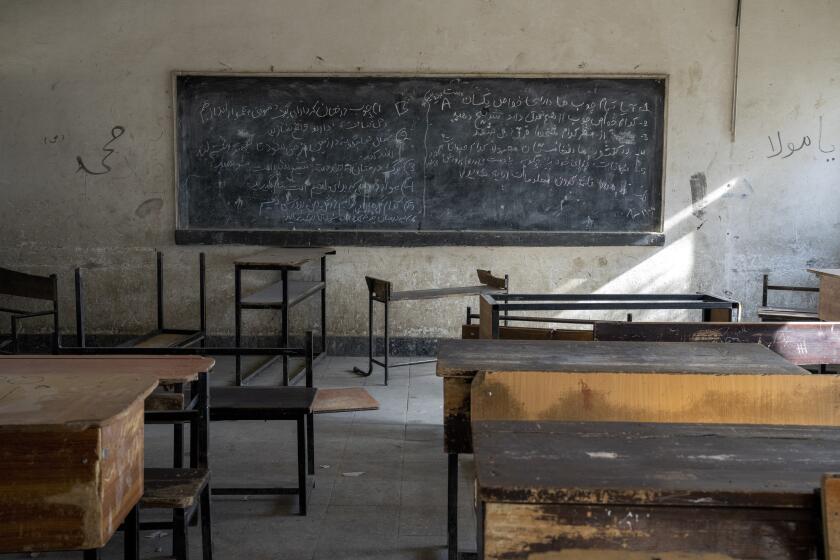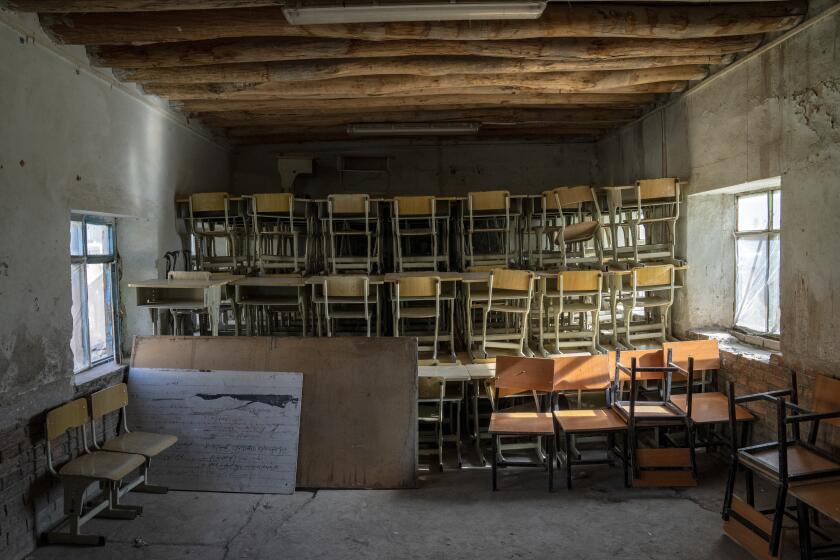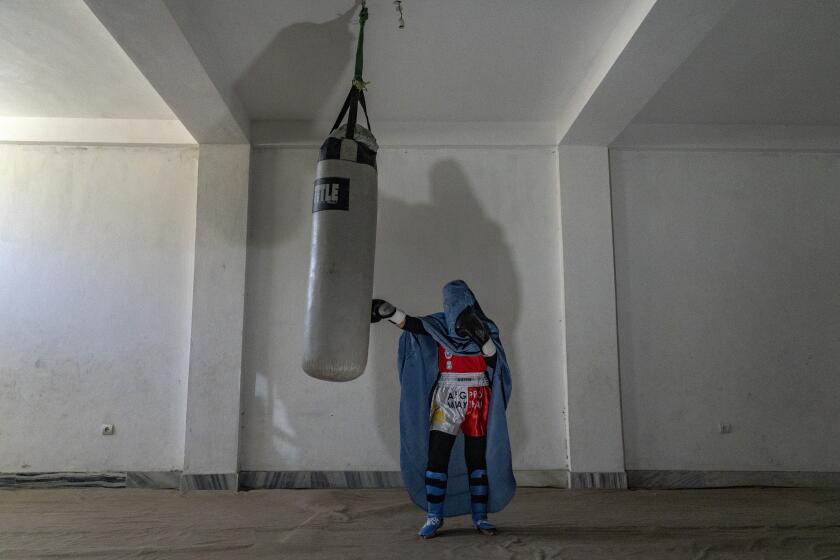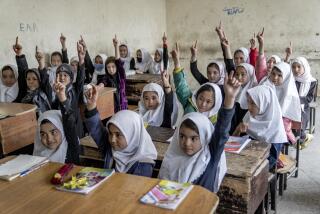U.N. rejects new Taliban prohibition on Afghan women working for the organization
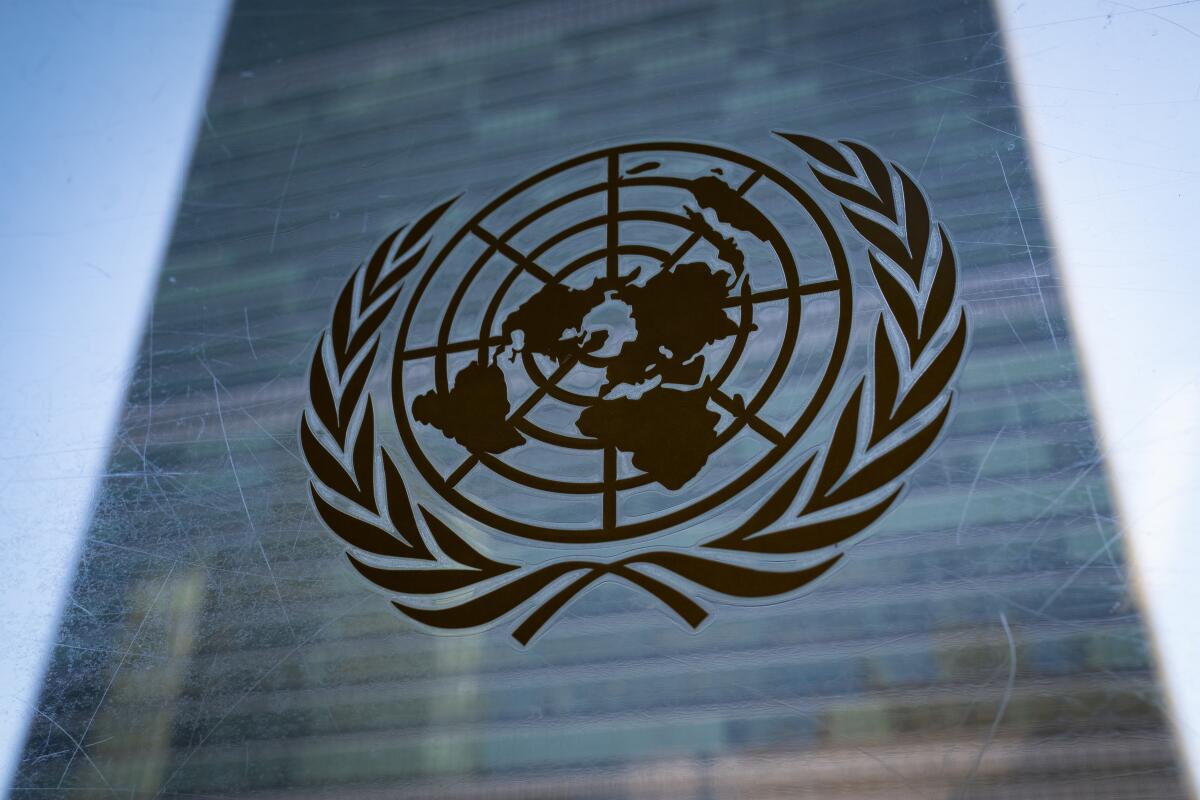
ISLAMABAD — The United Nations said Wednesday that it cannot accept a Taliban decision to bar Afghan female staffers from working for the organization, calling it an “unparalleled” violation of women’s rights.
The statement came a day after the U.N. said it had been informed by Afghanistan’s ruling Taliban that Afghan women would no longer be allowed to work for the world body. That announcement came after the U.N. mission in Afghanistan expressed concern that its female staffers were prevented from reporting to work in eastern Nangarhar province.
The Taliban decision is “an unparalleled violation of women’s rights, a flagrant breach of humanitarian principles, and a breach of international rules,” Wednesday’s statement said.
The Taliban have not commented publicly on the ban and have not released a statement.
The U.N. statement said several female employees in Afghanistan have already experienced restrictions on their movements, including harassment, intimidation and detention.
The Taliban government in Afghanistan has ordered all foreign and domestic non-governmental groups to suspend employing women.
“The U.N. has therefore instructed all national staff — men and women — not to report to the office until further notice,” the statement said.
Despite initial promises of a more moderate rule than during its previous stint in power, the Taliban have imposed harsh measures since taking over the country in 2021 as U.S. and NATO forces were pulling out of Afghanistan after two decades of war.
Girls in Afghanistan are now banned from education beyond sixth grade. Women are barred from working, studying, traveling without a male companion, and even going to parks. Women must also cover themselves from head to toe.
Afghan women were already barred from working at national and international nongovernmental organizations, disrupting the delivery of humanitarian aid, but the ban did not previously cover working for the U.N.
The minister of higher education in the Taliban government has broken his silence over his decision to ban women from universities in Afghanistan.
That changed this week. On Wednesday, the U.N. mission said that, according to the Taliban order, no Afghan woman is permitted to work for the U.N. in Afghanistan, and that “this measure will be actively enforced.”
The ban is unlawful under international law and cannot be accepted by the United Nations, the statement said.
The secretary-general’s special representative for Afghanistan, Roza Otunbayeva, is engaging Taliban authorities to convey the U.N.’s protest and to seek an immediate reversal of the order. The U.N. said it is also engaging member states, the donor community and humanitarian partners.
“In the history of the United Nations, no other regime has ever tried to ban women from working for the organization just because they are women,” said Otunbayeva. “This decision represents an assault against women, the fundamental principles of the U.N., and on international law.”
Otunbayeva is a former president and foreign minister of the Kyrgyz Republic. She was appointed by the secretary-general in coordination with the U.N. Security Council. A U.N. spokesman said Tuesday there’s been no Taliban action regarding the U.N.’s senior leadership.
Women and girl athletes in Afghanistan say they face intimidation from the Taliban, including visits and calls warning them not to engage in sports.
The U.N. has about 3,900 staff in Afghanistan, including approximately 3,300 Afghans and 600 international personnel, U.N. spokesman Stephane Dujarric said. The total includes 600 Afghan women and 200 women from other countries.
Dujarric wouldn’t speculate when asked Tuesday whether the U.N. could continue to operate in Afghanistan if the Taliban don’t reverse the ban on Afghan women. The U.N. contingency plan “is almost too tragic to contemplate,” he added later.
Taliban restrictions in Afghanistan, especially the bans on education and NGO work, have drawn fierce international condemnation. But the Taliban have shown no signs of backing down, claiming the bans are temporary suspensions in place allegedly because women were not wearing the Islamic headscarf, or hijab, correctly and because gender segregation rules were not being followed.
Associated Press writer Edith M. Lederer at the United Nations contributed to this report.
More to Read
Sign up for Essential California
The most important California stories and recommendations in your inbox every morning.
You may occasionally receive promotional content from the Los Angeles Times.
